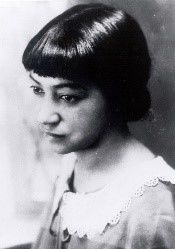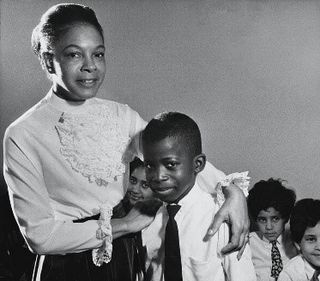Psychology
Psychology’s Unsung Heroines
The Indomitable Dr. Mamie Phipps Clark and Dr. Inez Beverly Prosser.
Posted February 6, 2019

Author: Ava Floyd, MA
Edited by Dr. Natalie A. Cort
For centuries, America’s legal system formally institutionalized racial segregation, discrimination, and violence—and though laws have changed, the long shadow of history continues to inject pain and strife in our modern, contemporary world. For this system of oppression to endure as long as it did, false claims of Black intellectual inferiority had to be sustained for long periods of time. To achieve this goal, Black achievement and excellence were systematically and deliberately denied, dismissed, hidden, destroyed, and appropriated by others. There are innumerable ways in which historical oppression concealed the talents and brilliance of people of color. In the field of psychology, we are slowly starting to excavate long-ignored Black scholars of significant empirical distinction—starting, in this post, with Dr. Inez Beverly Prosser (1895-1934) and Dr. Mamie Phipps Clark (1917-1983).
Prosser and Phipps Clark’s research and scholarship, from the 1930s and 1940s, continues to reverberate through history to influence the daily lives of all Americans. But the average undergraduate or graduate psychology students would be hard-pressed to recognize—or appreciate—the centrality of these two influential women in their academic and career pursuits. So who are these women—and why do some in the field of psychology acclaim them as heroines? Prosser and Clark’s contributions to psychological research are significant, but on top of that, their academic journeys serve as prototypes for many who are underrepresented in the field. Future Black leaders of the fields of psychology and counseling, in particular, can take powerful ideas from the stories of Prosser and Clark—ideas like, “We are valuable” and “We aren’t the only ones.”

Dr. Inez Beverly Prosser
In the 1930s, when a determined Inez Beverly Prosser sought to pursue a doctoral degree in psychology, she encountered an enormous obstacle. She was a Black woman in Jim Crow America. Due to her race, she was denied admission to all psychology graduate programs in Texas. However, she persisted. In 1933, after achieving a doctorate in education from the University of Cincinnati, Prosser became the first Black female psychologist. Prosser’s research focused on the impact of racial segregation and integration in schools on Black children’s self-esteem. Prosser’s accomplishments led to her being featured, in 1933, on the cover of the official magazine of the National Association for the Advancement of Colored People, The Crisis. Later, as a professor at Tougaloo College in Mississippi, Prosser’s social justice and philanthropic commitments led her to be a financial benefactor for Black undergraduate and graduate students. Prosser’s career serves not only as a model of academic excellence, social justice advocacy, and compassion to current psychology students. It also served as a critical model for a later pioneer: Mamie Phipps Clark.

Dr. Mamie Phipps Clark
As New York City (and other locales around the country) debate the dearth of statues commemorating women—and particularly women of color—one could legitimately wonder, “Where is the statue of Dr. Mamie Phipps Clark?” As the first Black woman to earn a doctoral degree in psychology from Columbia University in 1943, Clark was arguably one of the most influential Americans of the past 100 years. Some Americans may be aware of her seminal psychological research using the “Doll Test” in the 1940s. Her findings demonstrated that Black and White children expressed preferences for White dolls and assigned negative attributes to Black dolls. Others might even be aware of the monumental societal role her research played in the desegregation of American academic institutions in 1954. But most are unaware of the awe-inspiring woman behind the accomplishments.
Clark was one of the first psychologists whose research was ever cited in a United States Supreme Court decision, Brown vs. Board of Education. Her Master’s thesis, Development of Consciousness of Self in Negro Pre-school Children, was the foundation of the landmark Doll Test Studies. The studies were presented to the Court as evidence that, by age 3, Black children develop feelings of inferiority and self-hatred due to racism, racial discrimination, and segregation they were experiencing in the U.S. school system. The justices were swayed by the evidence; Chief Justice Earl Warren wrote, “To separate from others of similar age and qualifications solely because of their race generates a feeling of inferiority as to their status in the community that may affect their hearts and minds in a way unlikely to ever be undone.”
Psychology’s relative silence about Clark’s accomplishments may not be due only to societal racial prejudice; it’s likely that sexism also played a role. Her husband, Dr. Kenneth Clark, was an influential pioneer in his own right and the first Black president of the American Psychological Association. He is often given full credit for the Doll Test and its significance, but he himself noted the field’s gendered usurpation of his wife’s research: “It was an extension of her Master’s thesis on racial identification of Negro students. That was the thing that came to be known as the ‘Dolls Test’ that the Supreme Court cited. The record should show that was Mamie’s primary project that I crashed. I sort of piggybacked on it.” (K. B. Clark, as cited in Nyman, 2010, p. 76).
Lasting Legacies
Many decades after their research and their deaths, Prosser and Clark’s robust empirical legacy persist, and their legacies of accomplishment have irrevocably shaped not only the fields of clinical, school, and developmental psychology—they’ve also had a lasting impact on education, law, public policy, and American society in general. The field of psychology owes it to them—and to the future of the field—to extend to them their unacceptably overdue praise.
References
Benjamin Jr., L. T. (2008). America's first black female psychologist. Retrieved Jan. 22, 2019: https://www.apa.org/monitor/2008/11/prosser.aspx
Clark, K. B., & Clark, M. P. (1939). The development of consciousness of self and the emergence of racial identification in Negro preschool children. Journal of Social Psychology, 10, 591-599.
Nyman, L. (2010). Documenting history: An interview with Kenneth Bancroft Clark. History of Psychology, 13, 74-88.
Phillips, L. (2005). Mamie Phipps Clark. Notable American Women, 5, 125-126. Cambridge, MA: Harvard University Press.
Sue, S. (2009). Ethnic minority psychology: Struggles and triumphs. Cultural Diversity and Ethnic Minority Psychology, 15 (4), 409-415.


